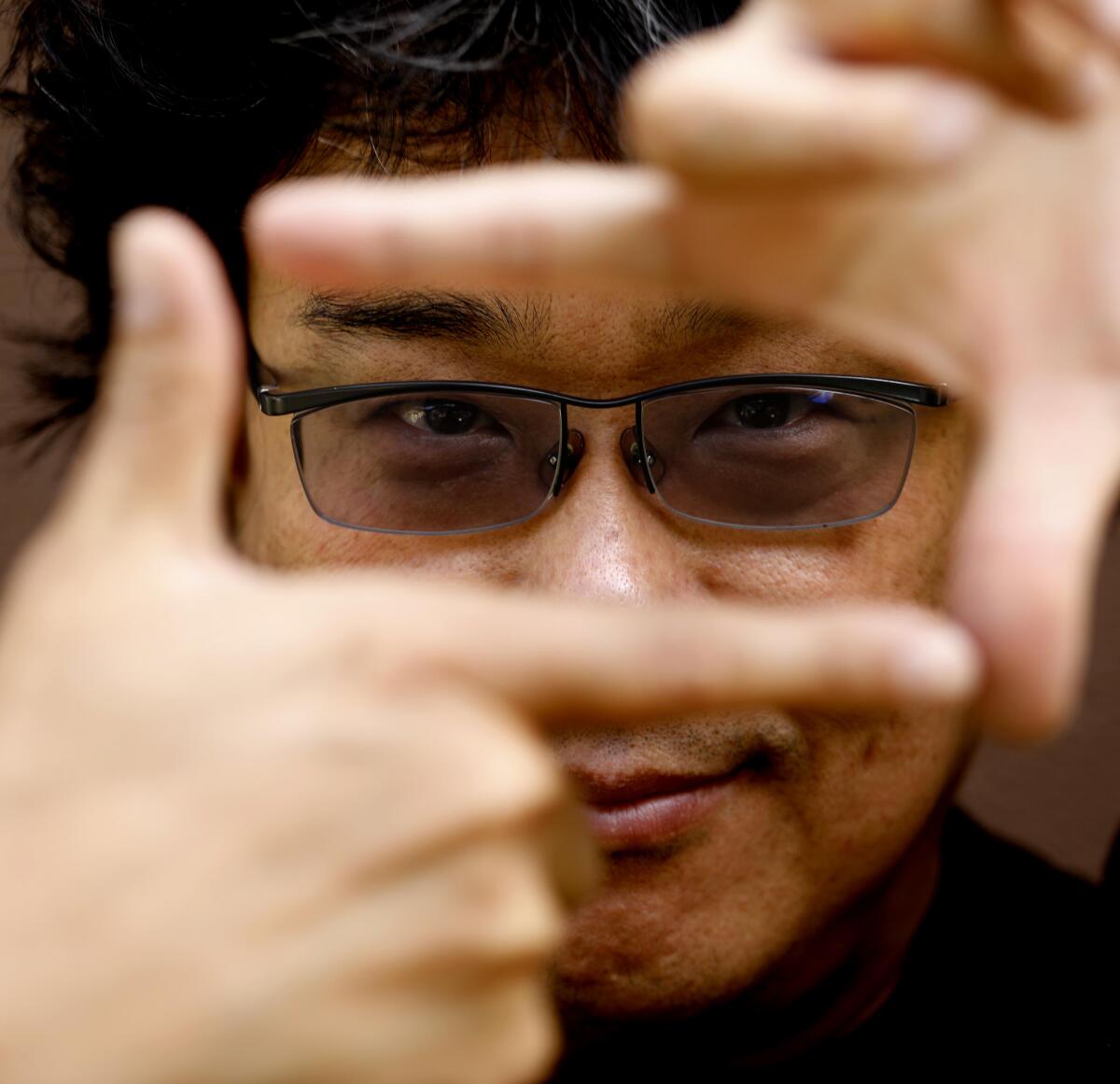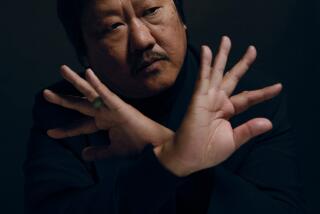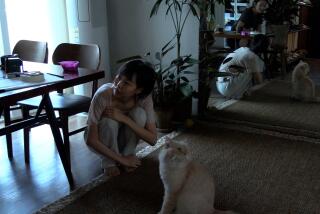‘Parasite’ and its take on the class divide could break South Korea’s Oscar dry spell

- Share via
Bong Joon Ho’s celebrated new satirical thriller “Parasite” centers on the Kims, a low-income South Korean family that manipulates its way into employment positions in the household of a wealthy family. It all starts with the Kims’ college-age son, Ki-woo, getting a tip about a tutoring gig for the youngest daughter of the well-to-do Parks. Soon his sister, mother and father are working as an art tutor, maid and driver for the Parks, who are somehow oblivious to the shared connections of their new employees. The story is completely original, but Bong says he had some inspiration from his college years.
“I tutored for a middle school boy in a rich family,” Bong recalls. “He secretly took me to the second floor and he showed off his private sauna at the house. I remember feeling very shocked to see a sauna in a house.”
The Palme d’Or-winning film has earned massive praise, and not just because Bong and his colleagues fashioned an entertaining story that works for audiences in any language. The picture has something to say about the growing global crisis of class disparity, a theme that has been present in a number of his other films, most notably 2013’s “Snowpiercer.”
“I remember first really talking about this project to other people in the production company during postproduction of ‘Snowpiercer,’ ” Bong says through a translator. “And because that film is also about the rich and poor in class, I think I was very wrapped up with those thoughts. I think it all began when I realized that I wanted to tell the same story, not through sci-fi or action, but with people who are around us in our daily lives. People who feel like our family members. And in Korea, it’s very common to have tutors and do tutoring jobs.”
Unlike a number of Bong’s previous films, such as 2006’s “The Host” and 2017’s “Okja,” “Parasite” is one of his less overtly fantastical efforts. But the fact that it’s more grounded doesn’t mean it’s a more personal film than any other picture on his résumé. The ever-humble Bong notes, “I think the most personal film that I made is actually my first feature, ‘Barking Dogs Never Bite.’ Not a lot of people have seen it. It wasn’t theatrically released [in the United States] and I am very relieved of that.”
Laughing, Bong adds, “Please don’t watch that movie. It’s a very stupid black comedy.”

As Bong sees it, “Parasite” may not inherently be a “giant blockbuster” (although it’s already a massive hit overseas), but the dramatic arc of its story line makes it so compelling.
“[The movie] is very funny. Sometimes it’s scary, like a horror film. But I think there’s a much deeper emotion that underlies the entire film,” Bong says. “I really want to leave the audience with this emotional lump at the end after they leave the theater. Something that they feel in their hearts and their skin.”
After Lee Chang-dong’s acclaimed “Burning” was snubbed in Oscar’s international film category (formerly known as the foreign-language film Oscar) last year, Bong finds himself once again trying to shepherd the first South Korean film to earn an Academy Award nomination. Bong understands it’s a complicated voting system and acknowledges that if a “Korean film is voted on by all those people outside of Korea, I think that process itself would be very meaningful.”
One reason for optimism is not only the buzz and rave reviews for the Neon Films release, but how the issue of universal economic inequality is prevalent on every continent.
“This is pretty pessimistic and scary to imagine, but I think five or 10 years later on this film might feel even more current,” Bong says. “And I think the ending really reflects that. It’s been so long since the rich and poor have been divided. There’s this anxiety and fear that it will only grow even wider and of course it would be great if that’s not the case, but I do have that feeling.
“I don’t think this issue can be resolved in our generation. I think it will be passed onto our children, to our children’s children and we have no idea when the system can really change.”
Bong exudes a genuine warmth and sense of humor that is almost too self-deprecating at times. His answer to what he loves most about the filmmaking process frames that trait perfectly.
“My favorite part is the sound mixing stage at the very end. Before then, my eyes have suffered so much and at that point I can really focus on my ears,” Bong says. “Throughout my seven features, I’ve worked with the same partner in sound design and mixing [Tae-young Choi]. So, when we sit together in the mixing room and go through each scene, one by one, I feel very comfortable. I also am very happy that I can really focus on my ears and also I feel very relieved knowing that it’s going to be over soon.”
More to Read
Only good movies
Get the Indie Focus newsletter, Mark Olsen's weekly guide to the world of cinema.
You may occasionally receive promotional content from the Los Angeles Times.










